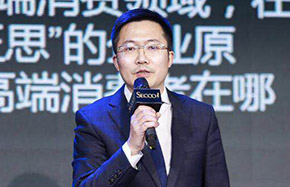Advanced electronics needs met in China
More than 85 percent of the key electronic parts in Chinese defense and high-tech equipment are now domestically made, meaning the country has the ability to be self-sufficient in advanced electronic components, officials said on Monday.
Over the past decade, the technological gap between China and traditional electronic powerhouses like the United States has shortened from 15 years to five years, said Diao Shijing, director of information technology at the Ministry of Industry and Information Technology.
At the same time, the ratio of domestically made key electronic parts in defense and high-tech equipment rose from 30 percent to 85 percent. "China is now fully capable of producing secure and reliable advanced electronic components, and will rely even less on imports," he said.
China's catching up in key electronic parts, computer chips, and software?- the so-called soul of information technology?- is "a remarkable achievement considering how fast other countries are also developing", Diao said.
These fields not only are crucial to big industries such as defense, internet and modern manufacturing, but also affect our daily lives through such gadgets as laptops and smartphones, he added.
"Chinese key electronic components and computer chips went from nearly unusable 10 years ago to being key parts of China's major defense and science projects, from space programs to deep-sea sub?mersibles," Diao said.
In the past, China mostly relied on imports because it lacked the talent and means to produce high-quality electronic products or computer software, he said. "This depen-d?ency opened China's defense and electronic infrastructure to external threats."
To tackle these issues, the State Council listed in 2006 the development of key electronic parts, computer chips and software as one of the 16 major national science and technology projects to finish by 2020.
This launched "China's new era of building a self-sufficient and secure electronic high-end electronic industry", said Wei Shaojun, chief technology engineer for the project.
But the technological gap was "monumentally huge", Wei said. China's CPUs could perform only at about 7 percent of the efficiency of their foreign counterparts, which also severely limited software developers' coding ability.
To close the gap, China organized around 100 companies to focus on "breaking through technological barriers, facilitating innovation, and building a sustainable ecosystem for research and development", Wei said.
China's booming demand for secured electronic components in defense and major science equipment also fueled the development, he added.
Now, China's computer chips can reach around 50 to 70 percent efficiency of their foreign counterparts. "And there are no noticeable differences in basic applications," Wei said.
In high-end applications, Sunway Taihu-Light, the world's fastest supercomputer, is wholly made with domestic chips.
During the 19th National Congress of the Communist Party of China in October, all of the computers used in transferring files were also domestically made, "and not a single machine crashed", Wei said.

























